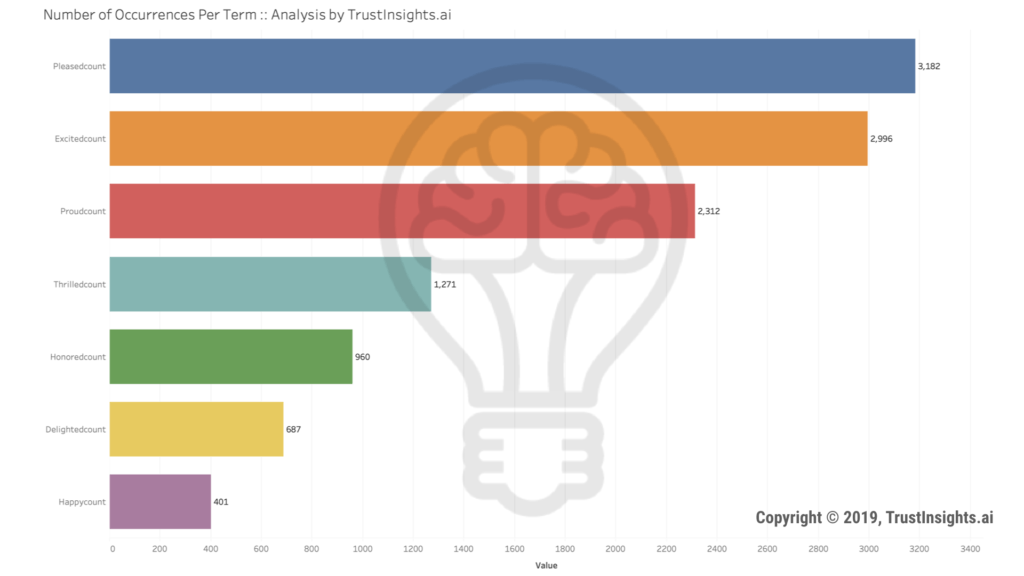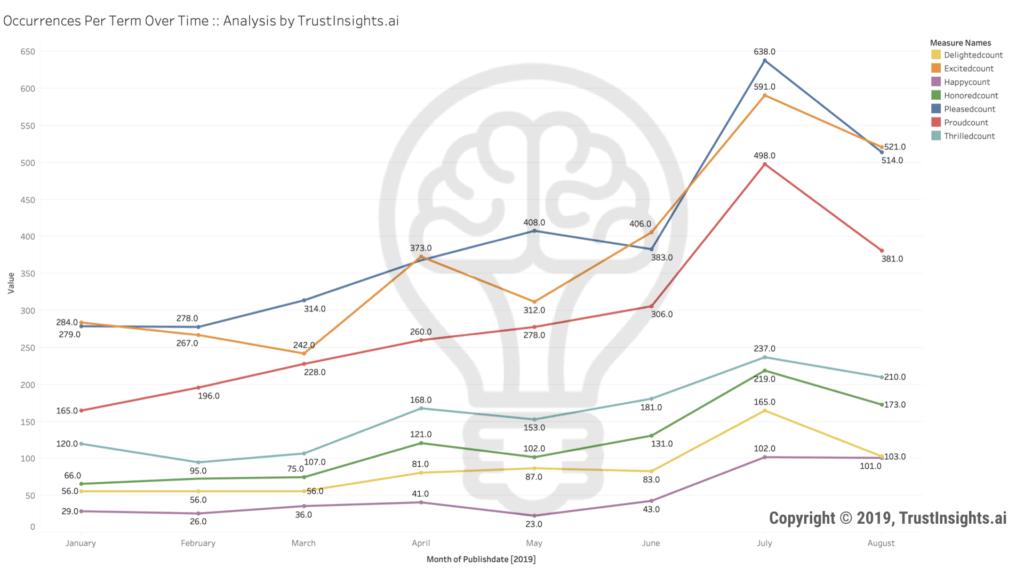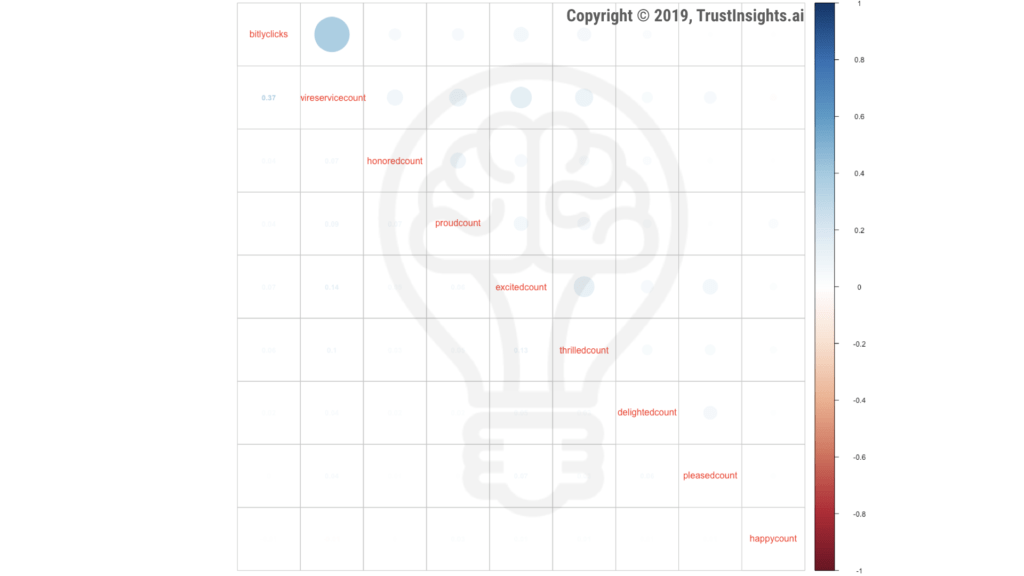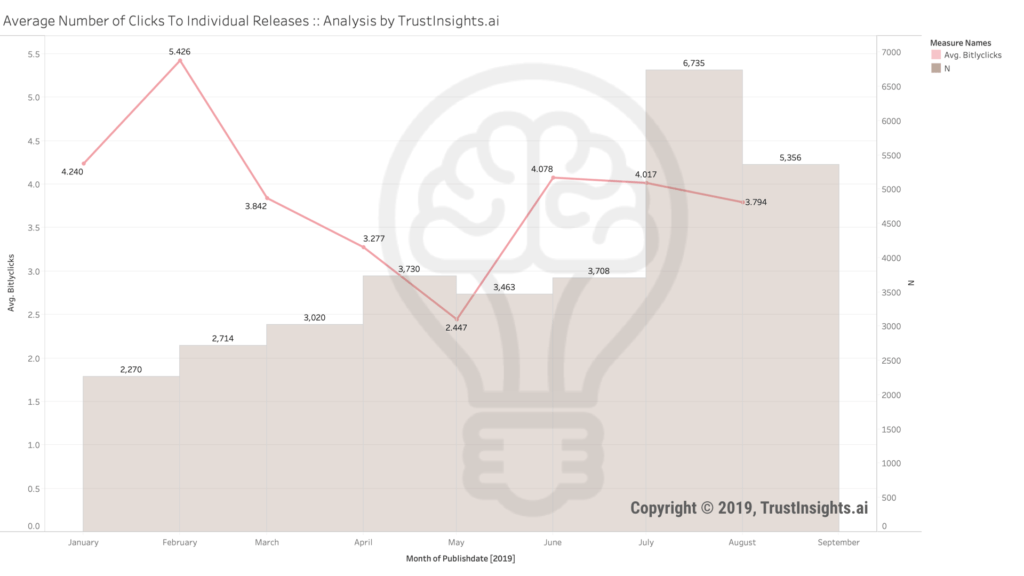Colleague and friend Shonali Burke recently observed, “You know, it would be so refreshing if, just once, a PR organization/association/consultant/agency did not send out a news release/email telling you how ‘thrilled’ they are about **_**. #justsayin”
This got us wondering… just how prevalent is this particular habit? What are the most overused words in press releases? We wanted to find out, quantify it and shed some light on public relations’ relative lack of language diversity in releases and outreach. So, we turned to the biggest tracker of news and press of all: Google News. Google provides access to one of the world’s largest open-source news engines via one of its non-profit projects, the GDELT project. In this project, anyone can access the terabytes of news that flow by every day and query it for the source news URLs.
Using our own custom-built software, we sampled 30,996 unique press releases year-to-date (out of 224,000 total – many agencies and PR professionals cross-post their releases multiple times to different wire services) and analyzed just how often seven phrases get used:
- “Pleased to”
- “Excited to”
- “Proud to”
- “Thrilled to”
- “Honored to” (and its UK English variant, “honoured to”)
- “Delighted to”
- “Happy to”
What did we find?

With 10.3% of all sampled releases, “pleased to” takes the current crown for the most (over)used happy, passive verb in press releases, followed by “excited to” with 9.7% of releases, “proud to” with 7.5% of releases, and “thrilled to” with 4.1% of releases. “Honored to”, “delighted to”, and “happy to” round out the rest. Collectively, these terms occur in 38.1% of all sampled releases.
Examining the releases over time, we also look at how often each phrase is used over time:

“Pleased to” and “excited to” battle it out for superiority month-over-month; some months, like January, April, and June, PR professionals are more excited than pleased.
What’s the impact of (over)using trite expressions? When we examine a correlation of clicks to press releases versus these terms, we see absolutely no statistical relationship. No term stands out as doing more to attract clicks than any other:

In fact, the average press release earns only a whopping 5 clicks per release (and the median number of clicks is zero):

In terms of effectiveness as a marketing method, press releases and news releases don’t deliver audiences. Part of the reason for this may be the templated, repetitive nature of the message.
Why does this happen?
When you see phrases repeated over and over again, it’s usually the result of either committee group-think or templates. In many public relations departments and agencies, often the people who are writing basic content like press releases are more junior in their careers, and they rely on pre-defined templates to do their work, something that looks like this:
- Opening boilerplate introducing industry-leading company
- Key point that company is pleased to announce
- Quote from CEO
- Information about product’s innovative, turn-key solution
- Quote or testimonial
- Contact info
It’s no surprise that an inoffensive phrase like “Company X is pleased to announce” makes it into so many press releases; I’d be willing to bet that it’s baked right into some of the document templates itself in the key announcement section. The downside of this lack of language diversity is obvious: releases that are boring, unengaging, and thus ignored.
What should communicators do differently?
To stand out, communications professionals should change up their templates and change out the language to be more reflective of reality. How many people are truly thrilled or excited by a new product announcement? Chances are, only the folks who have worked on that project might have that level of emotional engagement. Thus, don’t let the PR person write the release alone – get the unvarnished contributions from the project manager, the engineer, the designer, the people who legitimately are proud of their work, and let them speak to it in their own language. You’ll find the content is far more engaging and authentic.
Methodology Statement and Disclosures
Trust Insights extracted 30,996 press releases in the English language from Google News/GDELT. The timeframe of the study was January 1, 2019 to August 24, 2019; the date of extraction was August 24, 2019. The method of matching the terms was exact match using PERL regular expressions. The correlation method used was Spearman regression, due to the non-parametric nature of the different metrics.
|
Need help with your marketing AI and analytics? |
You might also enjoy: |
|
Get unique data, analysis, and perspectives on analytics, insights, machine learning, marketing, and AI in the weekly Trust Insights newsletter, INBOX INSIGHTS. Subscribe now for free; new issues every Wednesday! |
Want to learn more about data, analytics, and insights? Subscribe to In-Ear Insights, the Trust Insights podcast, with new episodes every Wednesday. |







Absolutely love this, Chris! PR pros will not only get a kick out of this but perhaps they’ll think twice the next time they’re writing the same old trite quotes in press releases.